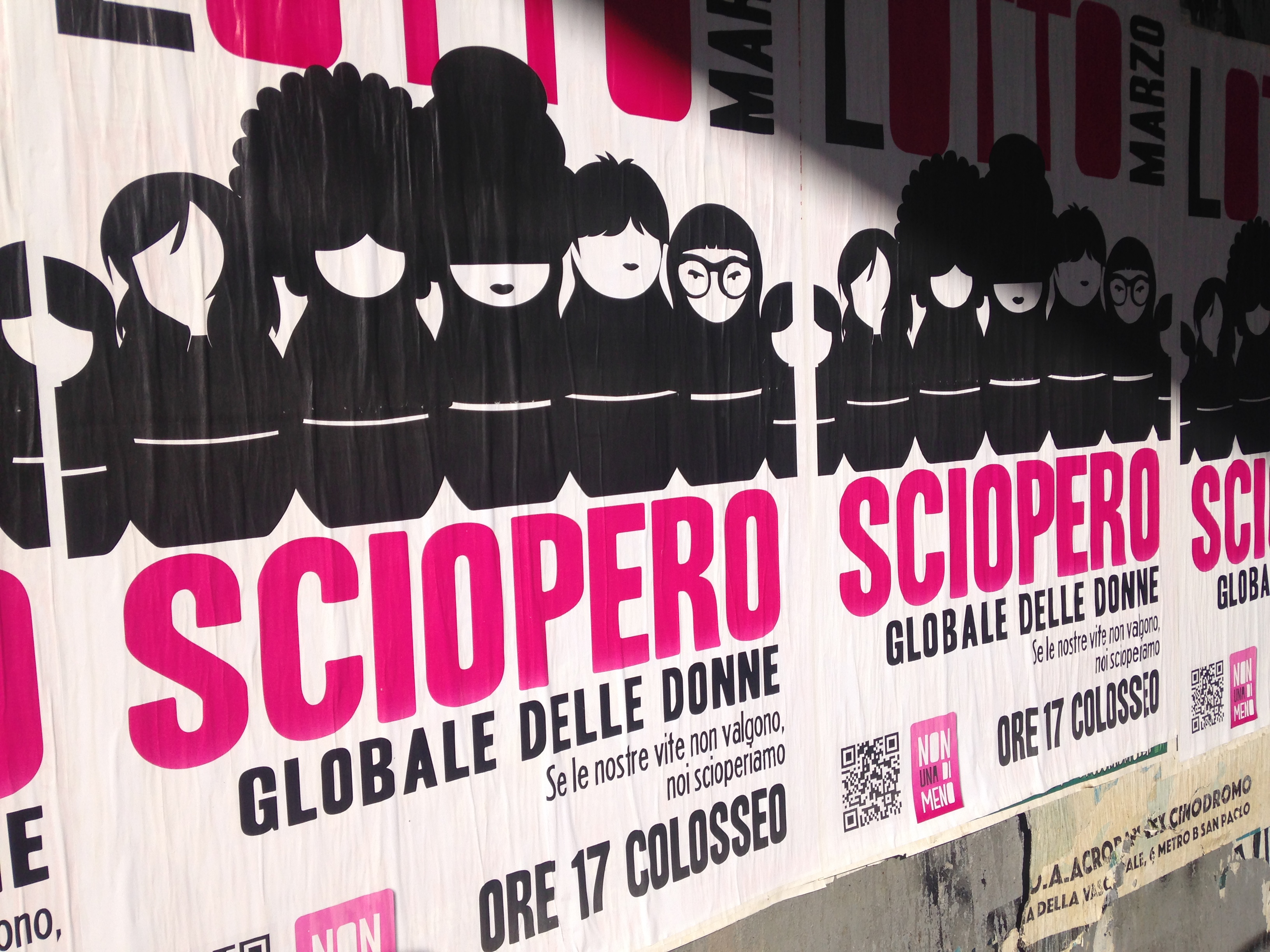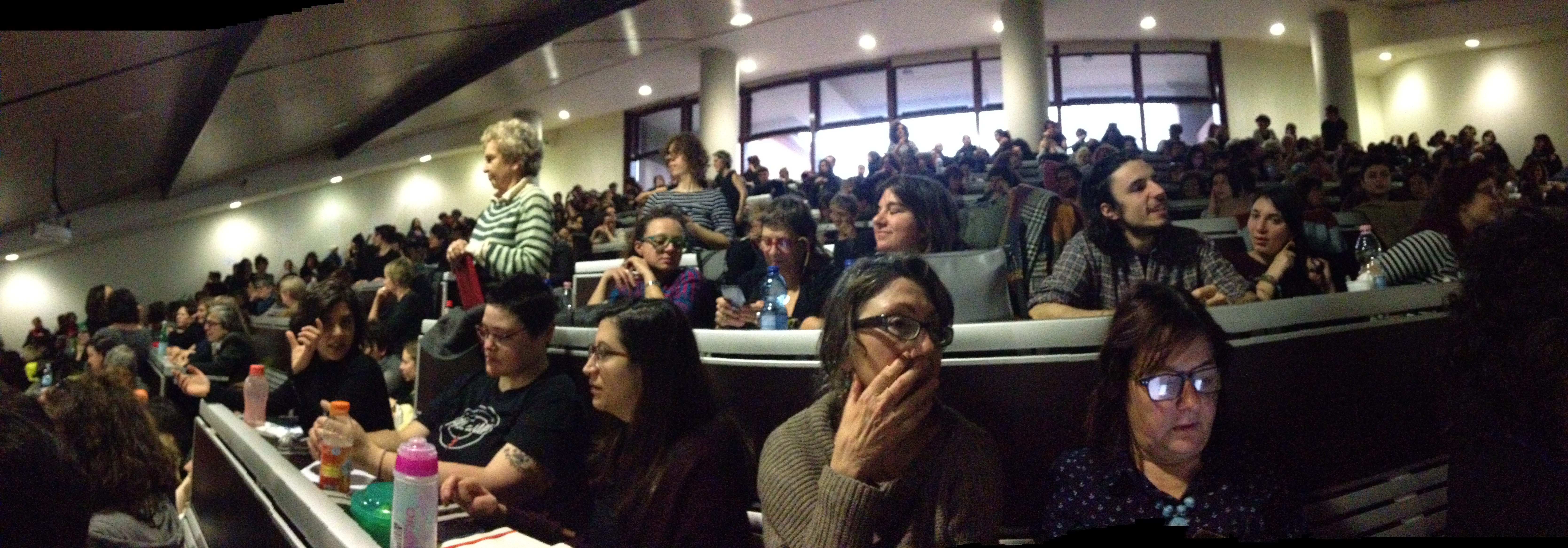Democracy and Consent: Kellogg International Scholar Advocates for Women’s Voices
All around the globe, the issue of consent—particularly women’s consent—has been one of the most discussed, dissected, and contentious topics of the past year.
In her senior thesis, Kellogg International Scholar Taylor Still ’18 is exploring a very specific dimension of consent—its relation to democracy—as she constructs a sophisticated analysis of American and Italian perspectives on feminism and political representation.
“My aim is to consider the meaning and intersectionality of ‘consent’ across identity categories and contexts,” the political science major says, “with the greater aim of amplifying women’s voices in our democracies.”
Learning how to be a scholar
Still developed and honed the research skills so critical to her senior thesis in the Kellogg International Scholars Program (ISP), in which students develop an apprentice-like relationship with a faculty member.
Paired at the beginning of her sophomore year with Faculty Fellow Susan Blum, an anthropologist, Still initially researched issues of language identity and linguistic human rights.
“That research was my first exposure to the field of anthropology,” Still says. “I was fascinated by the constant introduction to new people, new conflicts, new ways of being.”
More recently, she has been working with Blum on research that focuses on themes related to wellbeing, suffering, and motivation in college students. It is aligned with Blum’s overall research interest in education and how humans thrive—and do not thrive—in different learning environments.
Still has been drawn very personally into that research as well.
“It can be challenging to study education, something in which we are embedded and without which we cannot describe our young lives,” she says. “At the same time, the immediacy of studying college students’ wellbeing has made me more aware and engaged in my own experience at Notre Dame.”
Through engagement with her fellow Kellogg International Scholars as well as with her faculty mentor, Still credits Kellogg ISP with opening her eyes to both what constitutes “research” and “the vastness of research questions and research possibilities.”
Investigating how the personal and the political collide in democracies
 The questions at the foundation of Still’s thesis began to take shape spring semester of her junior year as she conducted research on contemporary feminism in Italy as part of a scholars’ program at Notre Dame’s Rome Global Gateway.
The questions at the foundation of Still’s thesis began to take shape spring semester of her junior year as she conducted research on contemporary feminism in Italy as part of a scholars’ program at Notre Dame’s Rome Global Gateway.
Simultaneously, while interning at Rome’s Be Free cooperativa social, she worked on grant proposals to support programs combating human trafficking and domestic violence—both high in Italy.
Putting her field research and internship experiences together with her work on political theory, Still devised her thesis topic, advised by Eileen Hunt Botting of the Department of Political Science.
It is a complex and layered analysis.
“In democratic governments, founded on relationships of political representation, one person must entrust his or her interest to another,” Still explains. “That’s the consent part. Yet, when women are marginalized and denied full citizenship—as they are in response to persistent objectification and unabated verbal and physical gender violence—that consent is obscured.”
The interrelatedness of the public and personal spheres is at the crux of her thesis.
“The marginalization of women from and within the public sphere also influences the way consent operates within sexual relationships—and lack of that consent can result in systematic violence against women,” Still asserts.
“Women’s voices must become more esteemed in the public sphere if there is to be any hope of attaining more accurate and active representation of women—and any hope for better resolution of complex social issues affecting them.”
As she wraps up her thesis this spring, Still acknowledges her debt to the Kellogg ISP and to Blum, her ISP faculty mentor.
"ISP and the partnership with Susan are what first excited me about the transformative power of research,” she says. “Yet, I have learned to be content with one's small contribution to a cross-section of a vast and evolving field.”
“My thesis considers several different intersecting ideas—representation, gender, crime, violence, interests, and human rights—but it is only one perspective and one possible combination of these idea spaces, one which I have been excited to make my own."
Working to transform lives as an educator
In her last semester at Notre Dame, Still is continuing her Kellogg ISP partnership with Blum, who, reflecting on the three years they have worked together, sees an arc of maturity and growth.
“Taylor began as a clear-thinking, serious first-year student interested in education,” she says. “She has become much more confident and even more mature in her views, which are bolstered by theoretical sophistication and by a wide range of empirical knowledge.
“Her understanding of schooling has increased and deepened through her own research project, through studying abroad, and, I hope, through engagement with my research. I have come to regard her as a valued interlocutor and greatly appreciate the wisdom and energy she has brought to our work together."
Inspired by that work, Still plans to continue it after graduation with students in under-resourced Catholic schools as a teaching fellow in Notre Dame’s Alliance for Catholic Education (ACE).
“I am incredibly grateful for the opportunity to put my Notre Dame education at the feet of my students,” Still says.






